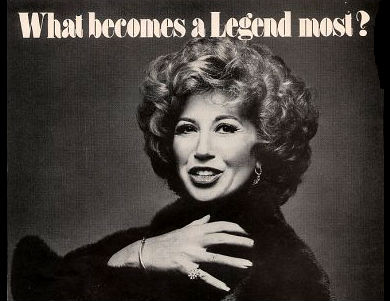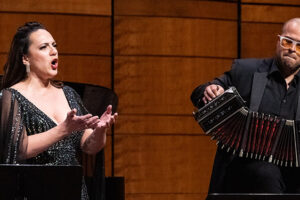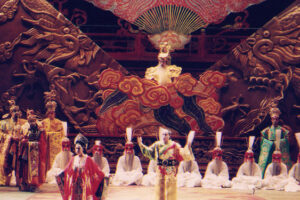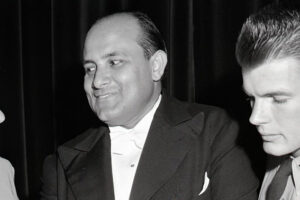
La Cieca finally finished listening to her review copy of the Beverly Sills reissue Norma last night, a recording she hasn’t heard since, oh, sometime during the disco era. This is first time this recording has appeared on CD, at least in wide release, and naturally going to be of interest to Sills (or Shirley Verrett) completists. But what about the general-interest listener?
Well, to start with, the bad memories I had for the LP version of this performance are only partly confirmed by more recent listening. The sound is acceptably clean for the period, very much “in the studio,” with extremely clean separation of the various aural strands. The muddy over-reverbed effect I recall is fairly well cleaned up, though Sills does retain a slight artificial “gauzy” quality in her closely-miked singing.
If you like a brassy Norma, this one will please you: James Levine allows the modern trombones and tuba their full wail, and sections like “Guerra, guerra” and, for that matter, about any time the Druids are coming or going, all sound like a top-notch marching band. I think Levine developed a better sense of bel canto line later on (though it’s never been anything close to his long suit) but in this early attempt the phrasing is quite mechanical and stiff. (This is not true when he properly follows la Sills, who has clear if sometimes controversial ideas of how this music should go.)
I don’t think this recording captures Shirley Verrett at her considerable best. One gets the feeling from scene to scene (that is, from session to session) she was in widely varying vocal estate. Some moments find the sound wooly and thick; whereas at other points (her entrance cavatina, for example) she sounds at the top of her glamorous form.
What I miss throughout, though, is reponsiveness to the words. The diction sounds well-coached, but consonants tend to recede and there are some impure vowel sounds, especially in final unaccented syllables. And you might as well know that the two divas’ voices just don’t blend, for all their careful musicianship.
The complete operas Sills did for Westminster/ABC almost always had some kind of second-stringer in for the tenor lead, and this Norma is no exception. Enrico DiGiuseppe was a workhorse of the lighter Italian wing at the NYCO and Met in the 1970s, but I don’t think he ever did Pollione onstage. At least he had not done the role onstage before this recording, and no wonder. The voice is very light and shallow, opening up only above about A-flat, which means that practically the entire role sits in an uninteresting part of his voice. (Even the written high C in the first aria sounds too easy, not an event at all.)
The low point of this recording, I think, is the last act duet “In mia man alfin tu sei,” in which both DiGiuseppe and Sills are saddled with sustained, heavy singing in a low to medium tessitura, exactly where neither voice has any real heft. To his credit, DiGiuseppe negotiates the coloratura fluently, more adeptly I think than just about any Pollione on record except John Alexander.
And then there’s Miss Sills. The problem, as La Cieca sees it, is that the basic quality of the Sills instrument, even in its pristine estate, was quite limited in variety of timbre or dynamics. The voice worked best at piano, when it had a lovely sweet shimmer evocative of girlish fragility. Baby Doe, Manon and Bellini’s Giulietta were perfect fits for that sound, and to a slightly lesser extent Violetta and Gilda.
When Sills drove the sound, it took on a harder, more glassy quality that (in combination with her electric, self-mocking stage personality) served admirably in more soubrettish parts like Zerbinetta and the Queen of Shemakhan.
I have to say that my reaction to the Donizetti queens was more admiration for her intelligence and hard work than actual enjoyment of the performance, let alone emotional transport. Especially in the Roberto Devereux, Sills manipulates the music very effectively so that her strengths (the silvery floated stuff) are highlighted, while the big-sing moments are faked — again, effectively, I think — though close-miking or melodramatic vocal acting.
In Norma, though, there are fewer places to hide. Sills mostly sticks to the score (in contrast to the heavy Roland Gagnon rewrite she does in Anna Bolena, for example) with a few higher cadenzas and a relatively conservative set of variations for the second verse of “Ah bello a me ritorna.” Unfortunately, much of the role lies just below the most ravishing part of her voice, and when the music rises to that G/A-flat/A area, it’s very often meant to sound vehement or at least majestic, qualities difficult to express with a quick fluttery vibrato.
She sings “Casta diva” in the original key of G, in good voice and with a clear and unfussy sense of the line. Like Renata Scotto, she does the trick of shifting all the dynamics about two notches toward pp. The first phrases are barely audible, but once the ear adjusts, the climax gives the impression of sounding fairly full. (This trick doesn’t work quite so well in the finale ultimo, because, even with the most sympathetic conductor in the world, you’re not going to convince the tenor, the bass, a huge chorus and all that brass to murmur the whole time.)
Unlike Scotto, though, Sills can’t keep the middle voice quite focused, even in very quiet singing, and so “Teneri figli” (the highlight of Scott’s performance) here sounds rushed and, frankly, dull. One other complaint is that Sills overuses her “wilting” vocal effect, when she just touches a pitch and then falls off it. Most egregious is on the word “Deh” in “Deh non volerli vittime,” when Sills makes the mighty Druidess sound like she threatening Gianni Schicci to throw herself in the Arno.

























Comments